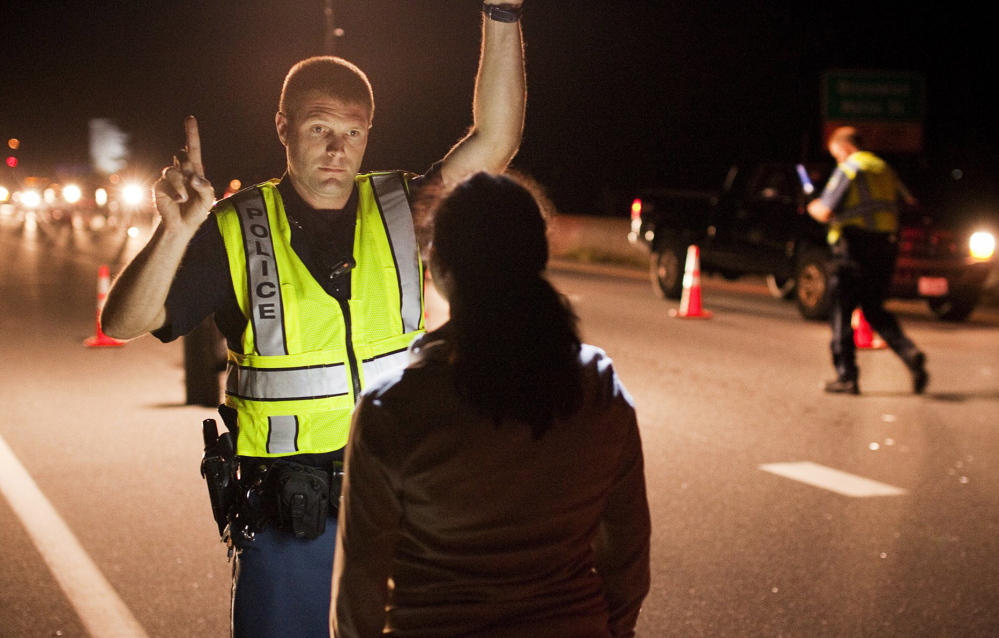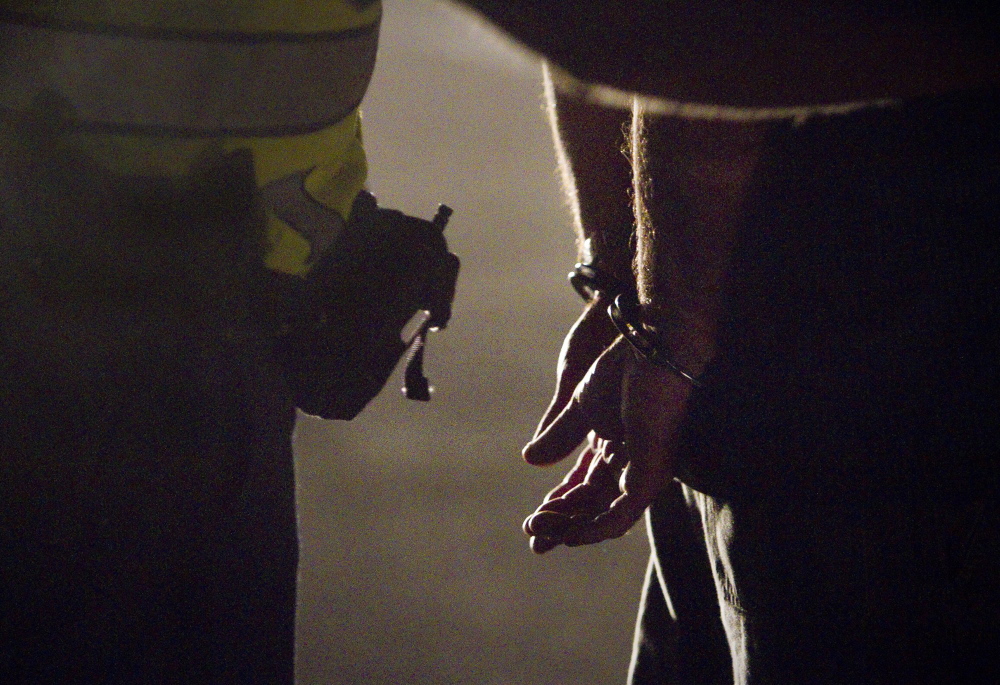A legislator, a law enforcement officer and a district attorney are questioning Gov. Paul LePage’s decision to veto a bill that would expose some repeat drunken drivers to more severe penalties.
Rep. Timothy Marks, D-Pittston, the bill’s sponsor and a retired state trooper, said Tuesday he is surprised that LePage rejected a bill that would crack down on people convicted of felony operating under the influence.
State law now looks only at a person’s recent 10-year driving history to determine whether a drunken driver can be charged with a repeat offense, which carries more severe penalties. Offenses older than 10 years aren’t taken into account.
If lawmakers override the governor’s veto of Marks’ bill, the look-back at felony offenses would include the driver’s entire record. The look-back at misdemeanors would remain at 10 years.
“The governor’s veto is ridiculous,” Marks said in an interview Tuesday. “We’re talking about some of the state’s worst offenders.”
The bill was driven in part by a fatal crash in Biddeford in August.
David LaBonte, who has a history of drunken-driving convictions, allegedly hit a family on bikes with his pickup truck while driving drunk. Jamerico Elliott was killed and his 15-month-old son, Lavarice Elliott, was badly injured. The boy’s mother, Melodie Brennan, also was hurt.
LaBonte had four drunken-driving convictions, in 1983, 1988, 2005 and 2006, but they weren’t so recent that his driver’s license would be declared invalid.
Although he had a conditional license that didn’t allow him to have any alcohol in his system, LaBonte had a blood alcohol content of about 0.16 percent at the time of the crash, police said. He now faces charges, including manslaughter.
An analysis by the Maine Sunday Telegram after the crash revealed that more than 5,000 people who had been stopped four or more times for drunken driving could still have been driving. That number was almost 15,000 for people who had at least three prior cases of drunken driving.
Marks said that when he was a state trooper, he was frustrated that the current law “forgives all sin” after 10 years.
The bill, L.D. 1729, originally proposed extending the “look-back” period to 15 years for both misdemeanor and felony drunken-driving convictions.
Marks said the Legislature’s Criminal Justice and Public Safety Committee, on which he serves, was uncomfortable with including misdemeanors, so he agreed to change the bill. The committee unanimously endorsed an amended bill covering only felonies, which include fatal crashes, accidents that cause severe injury, or any third offense within a 10-year period. The bill calls for a lifetime look-back period for felonies.
“It got watered down,” Marks said. “I was looking to do a little bit more than the committee could stomach. Now I hear the governor wanted more, but where was he” as the bill moved through the Legislature?
In his veto message, dated Monday, LePage said the bill wouldn’t go far enough to crack down on all drunken drivers.
“Since this would give the majority of repeat offenders an easier time in the criminal justice system, I cannot go along (with) it,” LePage wrote. “I have spoken to too many families who have lost loved ones to drunk drivers to support the continued existence of a sunset for OUI convictions.”
In his veto message, LePage pinned his opposition to the original bill, not the version that the Legislature passed without debate or a roll call vote. He said the original bill would have made penalties “a bit harsher,” but “would not have gone far enough to punish repeat offenders.”
“OUI convictions should be forever considered when calculating prior OUI convictions,” he said.
Although the veto message focuses on the original bill, LePage spokesman Peter Steele said in an email that the governor was aware of the amendment.
Biddeford Police Chief Roger Beaupre said he wished the governor had accepted the compromise, which addresses part of the problem.
“It’s a small bite at the apple, but it’s a bite,” Beaupre said.
Marks said it was “unacceptable” for the governor to do nothing instead of making an incremental improvement.
Geoff Rushlau, the district attorney for Lincoln, Sagadahoc, Waldo and Knox counties, helped craft the amended bill and said he hopes the Legislature will override the veto when it meets Thursday.
“The bill actually helps in a somewhat narrow way and targets only the most extreme offenders,” Rushlau said. “By vetoing it, that’s lost.”
The Maine Chiefs of Police Association monitored the bill but did not take a position, according to the group’s executive director, Robert Schwartz.
Laws differ from state to state on how long drunken-driving convictions are considered in subsequent cases. The periods range from as little as five years in 13 states, to no limit in Vermont, Massachusetts, Colorado and New Mexico, according to a 2012 report by the National Conference of State Legislatures.
Randy Billings can be contacted at 791-6346 or at:
rbillings@pressherald.com
Twitter: @randybillings
Send questions/comments to the editors.





Comments are no longer available on this story